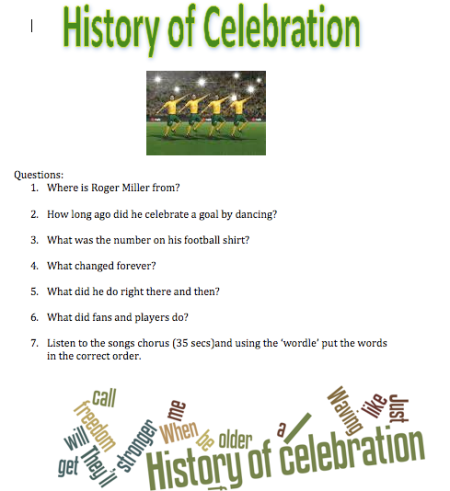
When I returned to the U.K. I decided I would not have a t.v in my new apartment as I find it provides a distraction from our thoughts and is usually full of throwaway entertainment, clichéd food programmes and posh people with excess money looking for a new plot of land. This mission to refrain from the background noise and altar of the living room did not last long and due to the package with my internet provider there was no avoidance of purchasing an HD TV and an accompanying TV licence. Having avoided tv for 3 years and only watched HBO box sets, it was time to sit back and channel surf. I was apprehensive about this exploration into the world of subliminal advertisement and pointless soaps and wondered if it was really worth purchasing a tv licence for unlimited access to trashy tv.
I’m amazed that people just put the tv on for some background noise to fill the void. The tv provides comfort to people and a focus for their livingroom. I always remember the genius of the tv programme, ‘the royal family’ where we sat down as a family to watch the tv and ended up watching a family who were also watching a tv in their living room.
I intend to avoid the spontaneity of channel surfing and adopt a more focused viewing schedule. There is nothing worse than stumbling across ‘the Jeremy Kyle’ show and wasting an hour of your day watching the depressing drama unfold. I believe that the British public pay for a tv licence and thus it is important that the BBC provide quality programming for the tax payers viewing pleasure. Recently I have been pleasantly surprised at the amount of challenging and enjoyable documentaries that have been on offer. Last week I watched a new documentary about the challenge of re-engaging boys who don’t like school and who, like many across Britain lag behind their female peers.
Based on the most recent educational research, Gareth introduces his pupils to the concepts of unbridled competition, risk and adventure. His aim is to harness the power of boisterous behaviour and challenge the boys’ apparent aversion to standing out from the crowd so that they feel more confident about aiming for better grades.
Here is a an article about this programme:
Gareth Malone – Extraordinary School For Boys

In the summer term of 2010 I was welcomed by Chris Thurgood, the head teacher of Pear Tree Mead Primary School, to teach a class of 39 boys. Since arriving at the school two years previously, she had been aware of the discrepancy in educational achievement between boys and girls.
Quite simply the girls were doing better and they couldn’t seem to get the boys to knuckle down. She made an unlikely choice: She accepted my offer that I, a choirmaster, might be able to help her sort out the problem.
I was advised that boys need to know who’s in charge, what the rules are, and if they will be applied fairly. With that simple adage I progressed. I can’t say I always prevailed but you have to show the boys that you are not to be trifled with.
At the same time, boys can be very sensitive and when they are scared or not getting their own way they can lash out. Training the boys to listen to each other and be respectful of each others’ feelings is the work of a lifetime.
I was amazed how often boys cry over tiny things. We have this image that crying is for girls but, wow, the boys could cry at anything: Falling over, petty injustices in the playground, or just because they were not able to do something.
From talking to the experts, teachers and parents, I’ve become convinced that modern life is pulling boys in directions that don’t necessarily help the basic skills of reading and writing.
Many boys play hours and hours of computer games every day which can be over-stimulating. By contrast a book can seem rather dull and that too much effort is required for not as much reward. In addition, children aren’t allowed to roam as freely as they were in the past.
There are obviously real safety concerns about letting kids out unsupervised but too much‘cotton-wooling’ is damaging for a boy’s sense of self belief, and I found that if I gave them responsibility to step outside their comfort zone they really rose to the challenge.
Some of the boys were very behind in their reading. It was deeply affecting and difficult to know how to help. Several times I wondered if my approach was having anything but a detrimental effect, because as a new teacher you measure your success minute by minute.
If an activity goes well then you are elated. If it doesn’t go according to plan it can leave you feeling pretty dejected and make you question yourself constantly. I think that over time teachers learn to roll with the punches.
But over the course of the term we did make a difference. I’m really proud that I tackled something that is of real importance. I’m proud of what I achieved with the boys and that the school will be taking some of my ideas forward.
I loved the excitement of the boys debating with the girls in the first programme, but camping in the school grounds was the most memorable experience. Tending the fire in the dead of night whilst the boys slept under the starlight was magical.
This has been a very busy year for me and I’m looking forward to a bit of a break. My wife – who is a teacher herself – is about to give birth to our first child and I’m absolutely convinced it’ll be a boy!
Your thoughts?
It will be interesting to see how the show progresses and if he does make a lasting impact. I was wondering how other teachers find the problem of engagement of students and if you have any tips on how to encourage and motivate boys in the classroom. If you have watched this programme I would like to know what you thought. Any comments would be greatly appreciated.



























